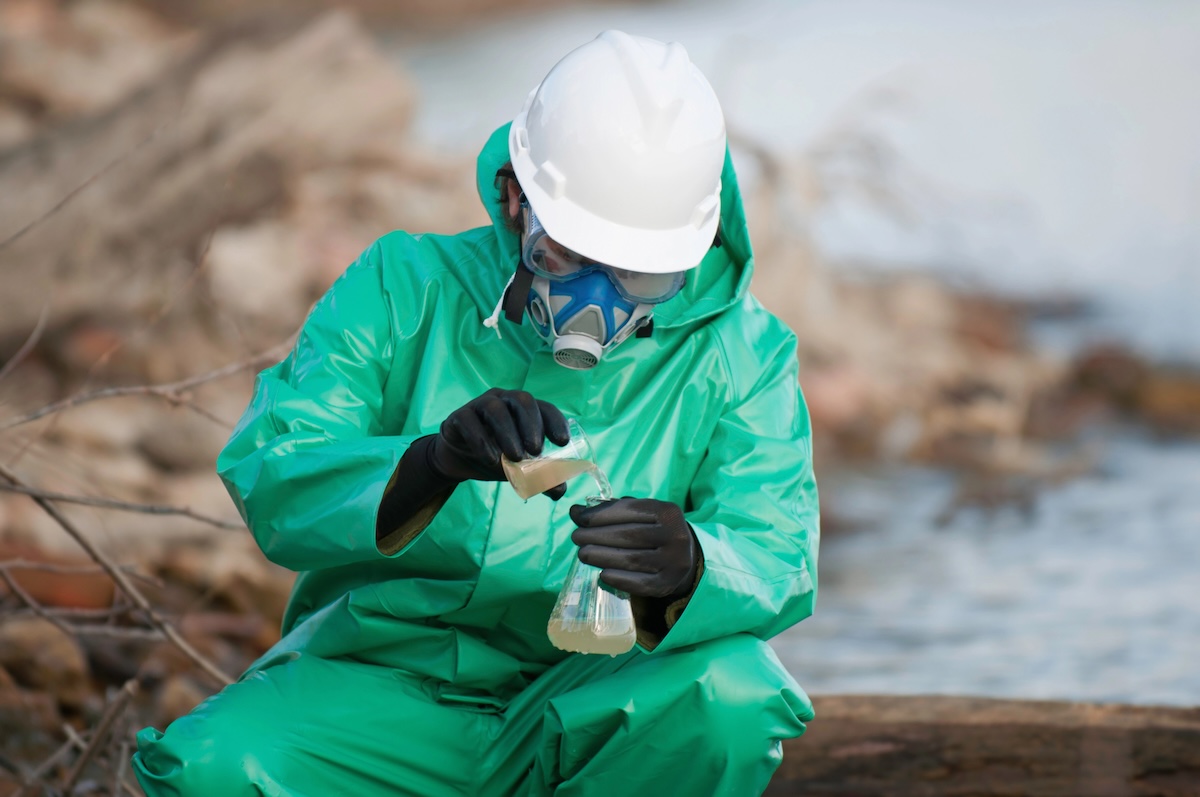Environmental racism and injustice are phenomena affecting citizens across the United States, including Mississippi. It generally refers to any policy or practice that differentially affects communities based on race, but especially to the intentional placement of polluting facilities, such as industrial sites, landfills, airports and military facilities primarily near Black and brown communities. Historically, such practices started to occur with the introduction of discriminating land-use policies and the rule of redlining, when financial support is withheld from neighborhoods with significant numbers of racial minorities.
Since the 1980s, advocates and studies have raised concern over how race has become the number-one indicator for where polluting facilities are placed. Being exposed to toxic fumes, dust and chemicals leads to increased health problems, such as cancer and respiratory issues. Princeton University published a report that states that although African Americans make up 13.6 % of the U.S. population, they are 75% more likely than white people to live in areas near facilities that produce noise, odor and traffic, and 68% live near coal-fired power plants. Another study has shown that Black and Latino communities have twice as many oil and gas wells in their neighborhoods than white communities.
Having safe drinking water is another significant topic when it comes to environmental racism. While there can be many hazardous chemicals in drinking water, per- and polyfluoroalkyl substances (PFAS) contamination has become a widespread concern across the U.S. due to its widespread occurrence and environmental and health dangers. PFAS are a large group of synthetic chemicals used since the 1950s in various household products and aqueous film-forming foam (AFFF), a type of firefighting foam. They are often called “forever chemicals” because they do not break down once they enter the soil and groundwater. Long-term exposure to PFAS leads to severe diseases such as decreased fertility, weakened immune systems, and various types of cancers.

In May 2023, scientists at Harvard University’s School of Public Health conducted the first-ever research published in the U.S. focusing on PFAS polluted drinking water in particular communities of color. The study also looked at the connection between the level of contamination and the proximity of PFAS pollution sites, showing that communities with higher rates of Black and Latino individuals are more likely to be exposed to PFAS than other communities.
Environmental injustices affecting communities of color in the U.S. are deeply rooted in complex socio-political dynamics and go hand in hand with poverty, poor medical support, and poor political representation. Unsurprisingly, there is plenty of medical evidence indicating that cancer deaths among Black people are significantly higher than other ethnic and racial groups.
Environmental Injustice in Mississippi
Environmental protection organizations raised concern over the environmental issues in Mississippi and how injustices and burdens disproportionately affect the Black community, which constitutes 37.8% of the state’s population.
In August 2023, Consumer Reports in partnership with Mississippi Spotlight conducted a study of Mississippi’s drinking water. The study included 149 samples from all 82 counties, 98% of which had PFAS. The report named six cities with the highest levels of PFAS in their public water, between 30.7- 92.5 ppt, all well above EPA’s set maximum contamination level. Out of the six cities, five of them have a predominantly Black population: Vaiden with 57.31%, Hattiesburg with 51.5%, Gulfport with 38.3%, Lexington with 75.6%, and Tchula with 98.5%.
Besides the Consumer Reports data, Mississippi state agencies have disseminated very little to the public about the PFAS contamination level and its adverse health and environmental effects. A bill was recently introduced to the Mississippi Senate in February 2024 to prohibit soil contamination with the “forever chemicals” that would make PFAS testing and sampling compulsory. However, currently, there are no laws and policies regulating the use and manufacturing of products containing high levels of PFAS and thus being sources of contamination, such as AFFF.

The problem of safe drinking water in Jackson, Mississippi’s capital city, has dominated the headlines for many years. Jackson’s Black population is 82.2%. The city has been facing decades of disinvestment in its infrastructure, which has led to a dysfunctional water system, leaving residents without running water at times of weather emergencies.
Meanwhile, in 2023 after an assessment, the EPA stated that Jackson’s drinking water was unsafe for human health and recommended significant repairs to its water treatment plants. While the EPA’s report does not explicitly mention PFAS, Consumer Reports’ assessment done in August 2023 demonstrates that Jackson has a PFAS contamination problem. Thirteen water sources were tested across Jackson, and all showed a PFAS level above four ppt, the highest being 19.26 ppt.
In the lack of comprehensive testing, there is a possibility that Jackson’s water system has even higher PFAS contamination levels, mainly since Jackson International Airport, a civil-military airport, is located within the city. In 2018, the Department of Defense reported that the PFOA and PFOS levels in groundwater on the base were 526 ppt. In September 2023, the DOD stated that remediation on the Jackson Air Force Base is planned, while no PFAS testing results are shared.
Action Is Needed
The instances of high PFAS contamination levels, unsafe drinking water sources, and dysfunctional water systems at locations with predominantly Black residents are much too common in Mississippi and have been recognized as clear cases of environmental racism. The problem of unsafe drinking water is now seen as a “Black problem,” not affecting the whole state, but communities of color.
We must shed light on the toxin exposure in these communities and provide financial, medical and legal support to those who suffer from PFAS and other toxic pollution-caused illnesses. This transparency would act as a major step to ensuring safe, pollution-free drinking water and would bring much needed justice to communities of color.
More and more individuals are suffering from devastating diseases due to toxic chemical exposure country-wide, and many have decided to join multi-district lawsuits against responsible manufacturers. Taking legal action may seem undoable to many, but there is support, the possibility of securing compensation, and a chance for holding unethical business practices accountable.
This MFP Voices essay does not necessarily represent the views of the Mississippi Free Press, its staff or board members. To submit an opinion for the MFP Voices section, send up to 1,200 words and sources fact-checking the included information to azia@mississippifreepress.org. We welcome a wide variety of viewpoints.






